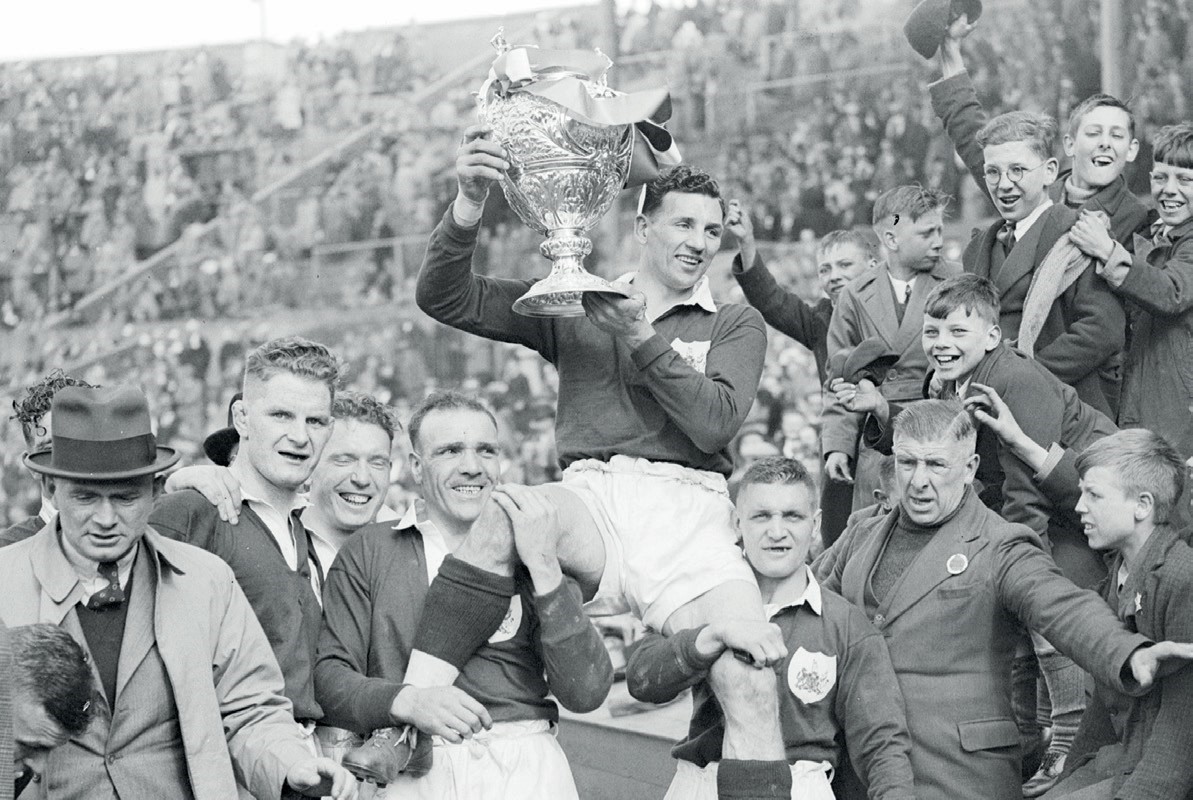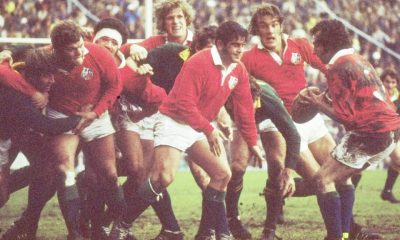
THE MAN TRULY IN THE KNOW

As any half-decent student of European history knows, the first Russian Revolution of 1905 paved the way for the end of the Tsars.
What they don’t know is that it also paved the way for the foundation of an Anglo-Welsh rugby dynasty like no other, one that continues to out-live the Soviet Union by more than 30 years and counting.
Its genesis is to be found in a remote corner of Latvia in the village of Pavilosta, a barely discernible speck on the map of the Russian Empire when Augustus Reissmann or Rismanis, depending on family interpretation of Baltic German or Latvian ethnicity, was born near Riga 140 years ago.
He had been named after his father. Two more of some note, Augustus III and Augustus IV, would follow and thereby hangs a tale and a half.
At 21, the original Risman won a place at the Prussian Military Academy in Kiel, a naval port of global renown offering him the chance to realise his sea-faring ambitions. There he would almost certainly have been enrolled under the Germanic surname Reissmann.
Returning some 12 months later to Pavilosta where he met his future wife, Annette, a native Latvian, he found the waves unleashed by the first Russian Revolution bringing death and destruction as they crashed in off the Baltic. Newly-married, the young couple decided to flee from the mayhem breaking out all around them.
That they re-surfaced in Cardiff, then the world’s busiest port, was no accident. As a merchant seaman probably travelling under the name Rismanis, he had been drawn to the Welsh capital by the prospect of realising his oceanic ambitions and the promise of a better place to raise a family.
They arrived in 1905. Augustus III appeared six years later by which time the family name had been anglicised, or Welshified, to Risman. The boy would waste no time making his a household name in Manchester and every other northern industrial powerhouse, where they used to pile out of the factories every Saturday lunchtime straight into their favourite football and rugby league grounds.
Gus Risman had been blessed with such all-round footballing ability that Spurs were among a clutch of First Division clubs eager to sign him. A century later the pots of gold would have been hard to resist but in Risman’s formative years rugby league offered more.
A goalkicking stand-off, full back or centre, he signed for Salford as a teenager in 1929, their manna from heaven made all the more so by the imminent onset of The Great Depression. When he retired almost 20 years later, Risman had played the best part of 900 matches including five Ashes series for Great Britain against Australia.


Risman and the best of British won them all, the first in 1932, the last with The Invincibles in 1946. His elder son, Augustus Beverley Walter, alias Bev, wasted no time extending the family tradition, playing and scoring in both winning union Tests in Australia with the 1959 Lions en route to New Zealand.
Bev Risman died last weekend at the age of 85. A dual code international, he spent five seasons at Leigh and five more at Leeds before a knee injury forced him to retire at 33.
By then he had added 852 goals and 1,857 points to the stack of 1,674 goals and 4,083 points accumulated by his father. Bev’s younger brother, John, 79, enhanced the family tradition over the course of a career with Workington, Fulham, Blackpool and Wales.
A schoolteacher, John Risman took the dynasty to new frontiers, coaching Scotland at the 1996 Universities World Cup and Serbia at the Mediterranean Cup eight years later. His brother, whose wife Ann, a much-loved figure in her native Cumbria, pre-deceased him last year, had the satisfaction of watching their three sons, Martin, John and Mike, make their mark on the game at a high level. All three were educated at Wellington College.
Martin, regional sales manager for an international bank, played for Loughborough University, where his team-mates included Andy Robinson of Bath and England fame, Rosslyn Park and Surrey. As for rugby league, Martin Risman’s career started and finished on the same day.
“I took part in one training session at Workington, my grandfather’s old club,” he says. “They are hard lads up north and they regarded me as some sort of fancy dan from the south. I had the daylights knocked out of me. It was almost as if I’d turned up with a target on my back to give the locals some practice. What you call a lesson in life, and I still bear the marks…”
John Risman junior, chief executive of Hillary Blinds in Nottingham, was good enough to achieve one of the rarer hat-tricks in the English game, three successive Blues for Oxford in the Varsity match at Twickenham during the 1980s. Mike, the youngest of the fraternal trio, played for Rugby Lions and Rosslyn Park in the top flight of the nascent English
League. He won a Cambridge Blue and captained England at U20 level in 1986, leading a side which included Barking’s finest, Jason Leonard, Bristol’s accomplished fly half-cumfull back Paul Hull and a scrum-half in Rupert Moon who became Welsh rugby’s favourite Englisman.
The managing partner of an international investment company based in London, Mike doubles up as the family genealogist. His exhaustive research into his great-grandfather’s life and the Russian Revolution’s effect on it has included a pilgrimage to Pavilosta.
“The original Augustus’ story is a fascinating one of adaptation and survival,” he says. “Great Grandad Gus was one of 15 siblings. Tragically, we believe his son, our rugby-playing grandfather, was the only male progeny to emerge from this whole generation. War meant that his sisters never had children and his brothers were all killed before, during and after the wars as the great powers fought over the Baltics.
“He would very probably have suffered the same fate had he not made the decision to leave. The place had become so hazardous that the only sensible option was to take flight from the chaos of the revolution and start a new life, in his case in Tiger Bay.
“Even there it was hard to escape the abject poverty which was such a driving force in my grandfather’s early life. He was one of five and two of his siblings died from poverty-related illnesses.
“With his Latvian father already ill and destined to die from diabetes in 1931at the age of 47, Grandad Gus may have blamed himself for being unable to provide for his sister who died in 1927. He would sign for Salford shortly afterwards at the age of 17.
“Towards the end of his life, I asked him where his parents had come from. He said: ‘They came from a place where all roads lead to the sea’. I gathered as much information as I could and went to find the little village in Latvia where they came from, Pavilosta. I went to this tiny square and saw a sign and suddenly what my grandad had said made sense.
“The sign said: ‘Welcome to Pavilosta where all roads lead to the sea…’.”


United Rugby Championship
Vaea Fifita’s commanding presence has Scarlets pushing for URC play-off spot

British and Irish Lions
British and Irish Lions Watch: Caelan Doris confirmed to miss the tour with injury

























You must be logged in to post a comment Login